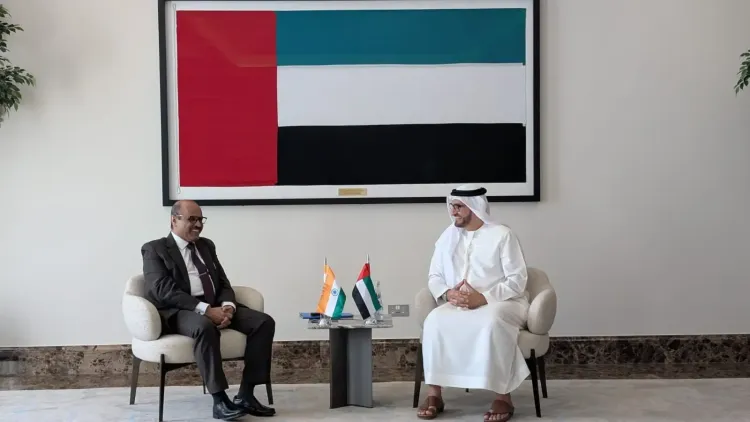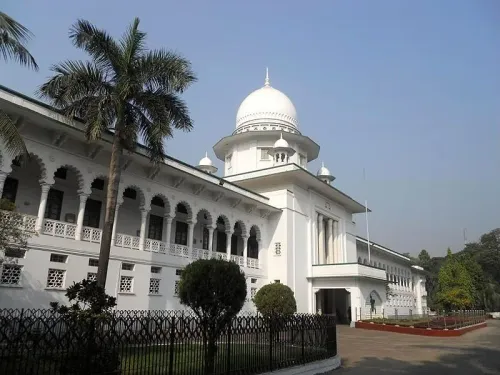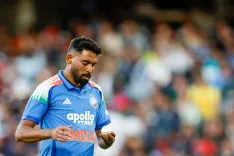How Are India and the UAE Enhancing Cooperation in Consular, Visa, and Legal Areas?

Synopsis
Key Takeaways
- Enhanced cooperation in consular, visa, and legal domains.
- Focus on the welfare of Indian citizens in the UAE.
- Significant progress in mutual legal assistance.
- Agreement to hold future meetings to sustain collaboration.
- Strengthening of the Comprehensive Strategic Partnership.
Abu Dhabi, Nov 26 (NationPress) India and the United Arab Emirates (UAE) convened for the 6th Meeting of the Joint Committee on Consular Affairs (JCCA) in Abu Dhabi on Wednesday, arriving at a consensus on advancing collaboration in the areas of consular services, visa processes, and legal matters.
The delegations from both nations assessed the developments since their last meeting in New Delhi in 2024. Indian and UAE officials shared their insights and best practices in the consular sector.
India expressed gratitude towards the UAE's leadership and authorities for their unwavering support towards the welfare of the Indian community residing in the UAE, which is pivotal in reinforcing bilateral relations, as per a statement from the Ministry of External Affairs (MEA).
The discussions led to advancements in four critical aspects: Improved information exchange and consular access; Accelerated collaboration on Mutual Legal Assistance and Extradition cases; Progressive easing of visa regulations; and the establishment of a systematic review mechanism, stated the MEA.
Both nations also reaffirmed their dedication to ensuring the safety, dignity, and welfare of their citizens residing in each other's territories.
The meeting was conducted in a spirit of traditional warmth and cooperation, reflecting the long-standing and Comprehensive Strategic Partnership between India and the UAE. Both parties emphasized the strength of their relationship, inspired by the visions of Prime Minister Shri Narendra Modi and His Highness President Sheikh Mohamed bin Zayed Al Nahyan, and deeply rooted in the enduring ties between the peoples of both nations.
Leading the Indian delegation was Arun Kumar Chatterjee, Secretary (Consular, Passport, Visa and Overseas Indian Affairs), MEA, while the UAE delegation was headed by Omar Obaid AlHesan AlShamsi, Under Secretary of the Ministry of Foreign Affairs. The two sides agreed to convene the 7th meeting of the JCCA in India at mutually convenient dates in 2026.
During his visit to the UAE, Arun Kumar Chatterjee also visited the Consulate General of India in Dubai, where he engaged with officials.
The Consulate General in Dubai shared on X that, "Shri Arun Kumar Chatterjee, Secretary (CPV & OIA), MEA, visited the Consulate, interacted with officials from various divisions, reviewed ongoing initiatives, and gained insights into the work being undertaken."
Previously, in July, Prime Minister Narendra Modi and UAE's President Sheikh Mohamed bin Zayed Al Nahyan reaffirmed their commitment to deepening the Comprehensive Strategic Partnership during a phone conversation, as reported by the MEA.
They positively noted the significant progress made across different sectors of bilateral cooperation and emphasized further development and deepening of collaboration for the mutual benefit of the peoples of both nations, according to a statement from the MEA.
Sheikh Mohamed congratulated PM Modi on becoming the second-longest-serving Prime Minister in India's history and wished him ongoing success in his service to the nation. PM Modi expressed gratitude for the UAE leader's kind wishes and affection for the Indian populace.
The two leaders also discussed strategies to enhance ties to serve mutual interests while promoting sustainable development and prosperity for their citizens. His Highness Sheikh Mohamed bin Zayed and His Excellency Modi affirmed their eagerness to fortify relations between the two nations, aiming to leverage opportunities for further prosperity for their peoples.









